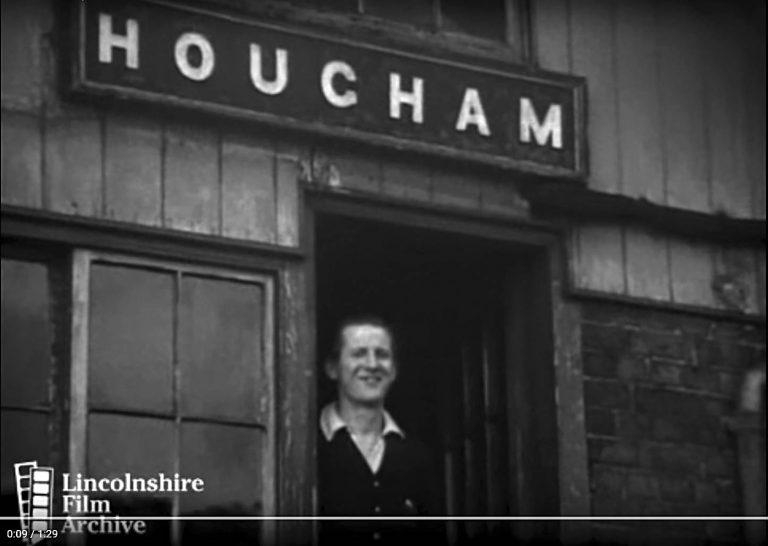During the past 4 years many moving ceremonies and events have taken place in commemoration of those who served their country on land, at sea and in the air during The Great War, 1914-1918.
On the day before our most recent Tracks through Grantham get-together in mid-October I called in at Grantham Library, as I often do when in the town, to look at the railway items in the Local Studies collection. A document caught my eye, a 'Roll of Honour' from 1914-18 which lists eleven GNR railwaymen who did not return to their families, their homes, and their jobs and workmates on the railway. Perhaps this modest document was once framed and displayed at Grantham Station? In time, maybe, it was put away in a cupboard there until someone thoughtfully decided that it should be preserved for us to study at the library.
As I was about to slide the document back into its folder I felt that it would not be right for these men's names to disappear once more into the darkness. Surely they deserve to be seen, and not only in Grantham but around the world in recognition of the bravery shown all those years ago? So I began to write out the information with the intention of creating a new page on our website.
The men are represented in the Roll by their initials and surnames, regiment, rank and their grade while on the railway. This seemed quite formal, so last week I decided to try to research their Christian names by looking online at reports in The Grantham Journal of the time. The reports usually indicated their age, so I created a new column for that too.
It has been very moving to read a few paragraphs about each of the eleven men in the editions of the newspaper. Often there are words of tribute quoted from a letter received by the family from an officer who, for all he knew, may have been destined to become a casualty himself soon after laying down his pen. In fact we learn that, following an act of conspicuous gallantry at the Battle of Cambrai, in which one of the Grantham railwaymen died, his Commanding Officer was himself killed before he was able to write to the man's family. A 2nd Lieutenant who wrote in his place died a year later, in November 1918.
We will remember them.
John Clayson



